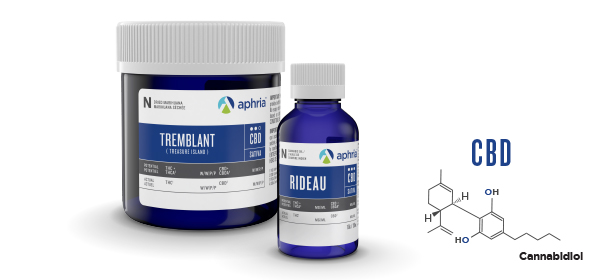CBD: A Natural Alternative to
Age-Related Health Problems

PAID CONTENT
CBD (cannabidiol) has been growing in popularity due to its many possible benefits, and the promise it shows for many age-related health issues. When people think about using cannabis, it may often be associated with getting high. What many people don’t realize is that CBD is non-intoxicating, so it doesn’t provide the “high” commonly associated with delta-9-tetrahydrocannabinol (THC), also found in cannabis. Upon learning this, many adults are considering CBD for pain management and relief from other ailments.
CBD and THC are the most well-known and well-studied cannabinoids (chemical compounds) in medical cannabis. They’re both produced by cannabis (Cannabis sativa L.) plants and are concentrated in tiny crystal looking structures found on the leaves and flowering tops called “trichomes”1. In addition to CBD and THC, over 100 cannabinoids and 200 terpenes (organic molecules) are found in cannabis, all of which have varying therapeutic effects on the body2,3.

Research has shown that the therapeutic effects of medical cannabis are influenced by the ratio of THC to CBD found in each product. Medical cannabis grown with low levels of THC and high levels of CBD are known as CBD dominant strains. Due to the low levels of THC found in these products, CBD dominant products are often chosen for daytime use, as they are less likely to produce the side-effects associated with THC. Both CBD and THC are able to be extracted from the cannabis plant and diluted into a carrier oil. Cannabis oil products offer patients non-smoking alternatives that deliver consistent potency and dosing. Oil products can contain either balanced amounts of THC and CBD, high levels of CBD with virtually no THC, or the opposite with high levels of THC and virtually no CBD4,5.
Research has shown that CBD provides many therapeutic effects including6,7,8,9:
- Reduced anxiety (OCD, social phobia, PTSD)
- Anti-inflammatory
- Reduced pain
- Antidepressant
- Anti-psychotic
- Reduced seizures (anti-epileptic)
- Reduced spasms
Aphria offers a variety of CBD-dominant products that include softgels, oil, and dried flower. Their most popular CBD dominant products are Rideau oil, Rideau softgels (also available in extra-strength), and Tremblant dried cannabis flower. These high-quality products are backed by their Seed-to-Sale Certified quality promise, a quality management program involving over 500 steps, and provide a variety of options to help you find your preferred method of consumption. Bottled oil products are shipped with a measured dropper, providing full control over dosing. Softgels are discreet, flavourless and pre-dosed, making them a convenient option. Both are oil products that have a slower onset but longer duration. Dried cannabis flower can be smoked or vapourized for faster acting effects that don’t last as long.
If medical cannabis is an option that interests you, talk to your doctor. Your doctor will help to determine if medical cannabis and CBD are right for you, by considering your medical history, current prescription schedule and appropriate dosage. If your doctor is not comfortable prescribing medical cannabis, contact Aphria’s Patient Care team for a complete list of prescribing physicians in your area. To learn more, visit aphria.ca
-
Solymosi and Köfalvi (2017) Cannabis: A treasure trove or pandora’s box. Mini-Reviews in Medicinal Chemistry 17 (13):1223-1291
-
Booth et al. (2017) Terpene synthases from Cannabis sativa. PLoS ONE 12(3): e0173911.
-
Russo EB (2011) Taming THC: potential cannabis synergy and phytocannabionoid-terpenoid entourage effects. British Journal of Pharmacology 163:1344-1364.
-
Lewis et al. (2017) Pharmacological foundations of cannabis chemovars. Planta Medica. DOI 10.1055/s-0043-122240.
-
MacCallum and Russo (2018) Practical considerations in medical cannabis administration and dosing. European Journal of Internal Medicine 49:12-19.
-
Devinsky et al. (2018) Effect of cannabidiol on drop seizures in the lennox-gastaut syndrome. N Engl J Med 378(20):1888-97.
-
Rohleder et al. (2016) Cannabidiol as a potential new type of antipsychotic. A critical review of the evidence. Frontiers in Pharmacology 7:422.
-
Blessing et al. (2015) Cannabidiol as a potential treatment for anxiety disorders. Neurotherapuetics 12(4):825-836.
-
Philpott et al. (2017) Attenuation of early phase inflammation by cannabidiol prevents pain and nerve damage in rat osteoarthritis. Pain 158(12):2442-2451.
 Aphria.ca
Aphria.ca